Reports
Fulton County 2024 Election Observation Mission Final Report
The Carter Center deployed nonpartisan observers to observe the election process in Fulton County, Georgia, working alongside the “Monitoring Team” as part of the Fulton County 2024 Election Observation Mission. This final report summarizes the Center’s observations, findings, and recommendations.
Georgia 2024 General Risk-Limiting Audit Limited Observation Report
The Carter Center observed the post-election, risk-limiting audit for the 2024 general elections in Georgia. This final report summarizes the Center’s observations, findings, and recommendations.
The Case for Nonpartisan Election Observation (PDF)
Growing sectors of the American public are increasingly distrustful of many of our democratic institutions, including political parties, mass media, and government officials. As citizen-led initiatives, nonpartisan election observation efforts have the potential to serve as independent and trusted sources of information.
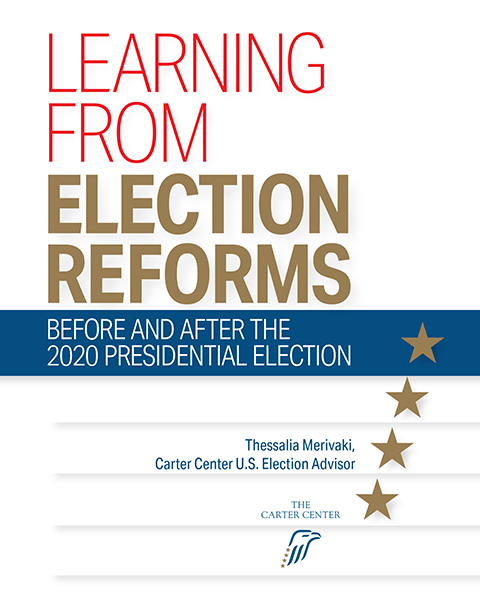
Learning from Election Reforms Before and After the 2020 Presidential Election
The 2020 presidential election illustrated that increasing access to voting can have a strong and positive impact on voter participation. Because of COVID-19, states adopted new policies, such as electronic absentee ballot request, absentee ballot cure process, prepaid postage on the absentee ballot envelope, and drop boxes, and amended existing policies, like the inclusion of COVID-19 as an excuse to vote by mail. A few states temporarily expanded access to in-person voting by allowing voters to cast their votes before Election Day and offering curbside voting. As such, in 2020, the state election landscape was overwhelmingly pro-voter access.
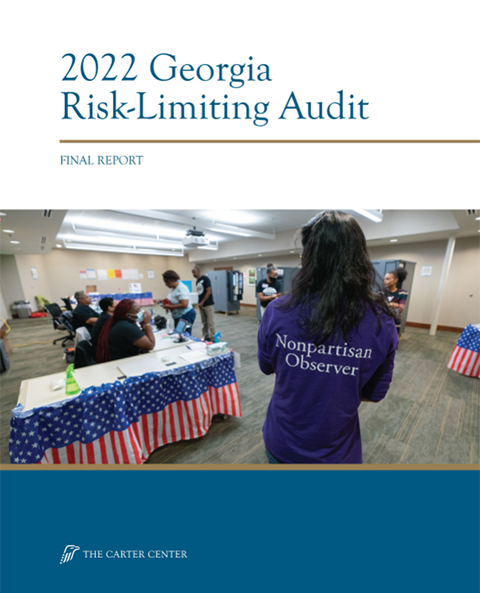
2022 Georgia Risk-Limiting Audit Final Report
The Carter Center observed the post-election, risk-limiting audit for the 2022 midterm elections in Georgia. This final report summarizes the Center’s observations, findings, and recommendations.
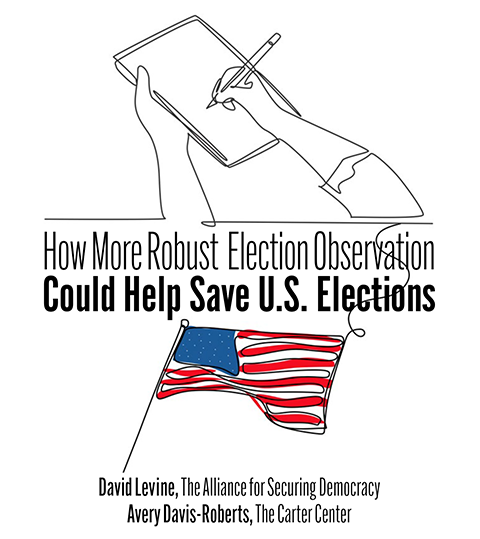
How More Robust Election Observation Could Help Save U.S. Elections
Though the 2020 election was called the most secure ever conducted in the United States, confidence in the presidential election results remains strongly divided along partisan lines, and bad-faith actors continue to find fertile ground for their efforts to undermine trust in U.S. elections. Deficient and potentially dangerous post-election reviews of the 2020 election, like that in Arizona, have exposed sensitive information about election equipment and data.

2022 General Election Observation: Fulton County, Georgia
Report Prepared by The Carter Center for the Fulton County Board of Elections and Registration and the Georgia State Election Board's Performance Review Board on Dec. 15, 2022.
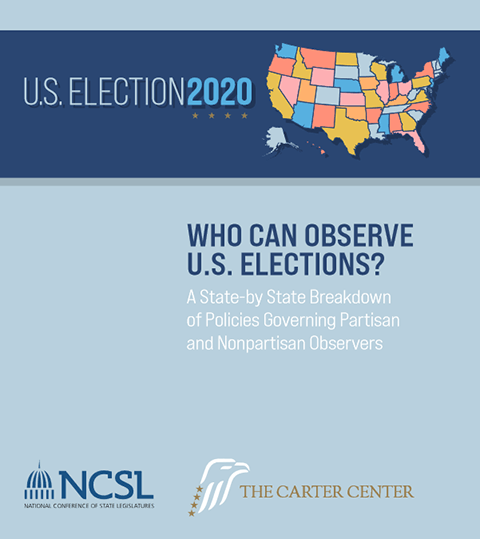
Who Can Observe U.S. Elections?
This document gives a state by state examination of U.S. nonpartisan observers, including their level of access to observe the electoral process in each state, and whether any special accommodations have been made to ensure observer access in light of the covid-19 pandemic. It notes when certain aspects of the voting process are held in public and therefore accessible to all interested parties, when access is limited to partisan observers, and when nonpartisan observers are able to observe.
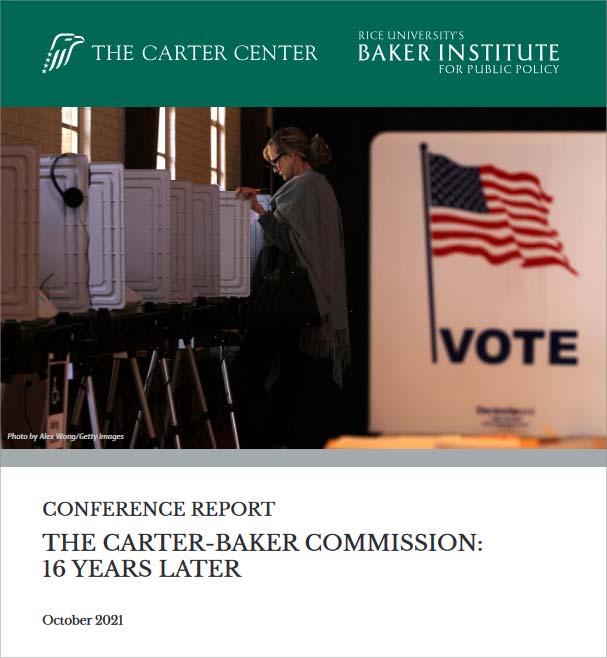
The Carter-Baker Commission: 16 Years Later
The Carter Center and Baker Institute set out to convene election leaders and other experts to discuss the important challenges and opportunities facing the nation’s election system and, like the original Carter-Baker Commission, seek out areas of consensus for building confidence in U.S. elections.

The Georgia Risk-Limiting Audit/Hand Tally: A Carter Center Observation Report
Following the November 2020 election, Georgia conducted a risk-limiting audit (RLA) of the presidential race. This audit constituted the largest hand tally of an election race in U.S. history. The Carter Center, which has observed more than 110 elections in 39 countries, was the only nonpartisan organization credentialed by the Office of the Secretary of State to provide an impartial assessment of the implementation of the audit process.
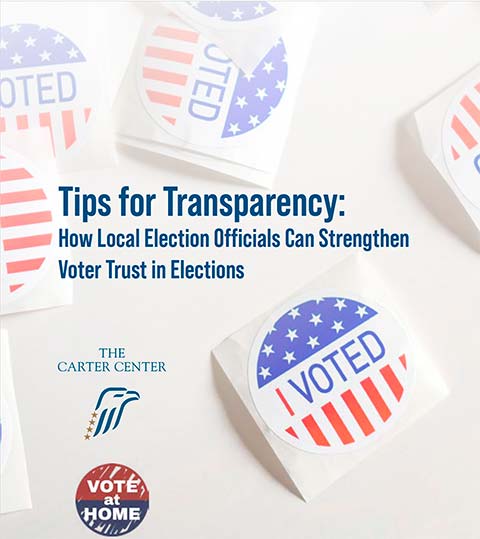
Tips for Transparency: How Local Election Officials Can Strengthen Voter Trust in Elections (PDF)
Public trust in the electoral process is critical to increasing voter participation and confidence in election outcomes. One way to bolster trust is by promoting transparency throughout the election process, while ensuring election operations run smoothly and efficiently. Voter education and outreach can increase understanding of how elections work and, as a result, build trust and confidence in the entire process.

Ensuring Voter Access while Protecting Election Integrity
This report addresses the two main goals of election administration and reform—ensuring election integrity and facilitating voter access—and concludes that these goals are not mutually exclusive and should be pursued in tandem, following recognized international election principles and standards.
Code of Conduct

Agreed Principles for Georgia’s 2020 Runoff Elections for the U.S. Senate (PDF)
The U.S. Senate candidates for Georgia and political party representatives agree that these principles will govern their conduct and behavior during the Georgia 2020 Runoff Election for the U.S. Senate. The candidates and political parties agree to act in the utmost good faith in abiding by these principles and to encourage their supporters to do likewise.
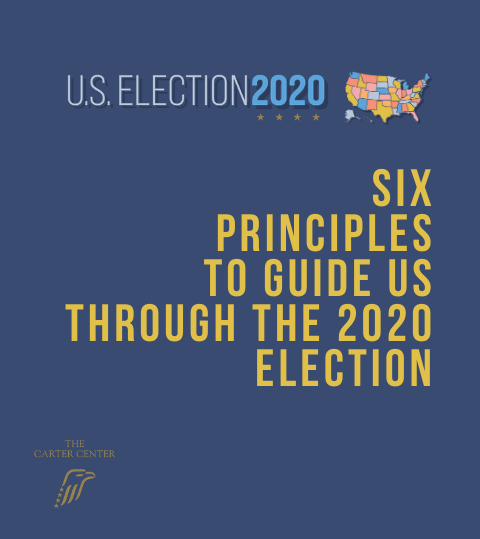
Six Principles to Guide Us through the 2020 Election (PDF)
The 2020 election is being held in unusually challenging circumstances, and many Americans are feeling high levels of uncertainty about the process. Drawing on our long experience observing elections around the world, we’ve developed six key principles to help guide and provide reassurance to citizens, elected officials, and the media.
Ask Experts
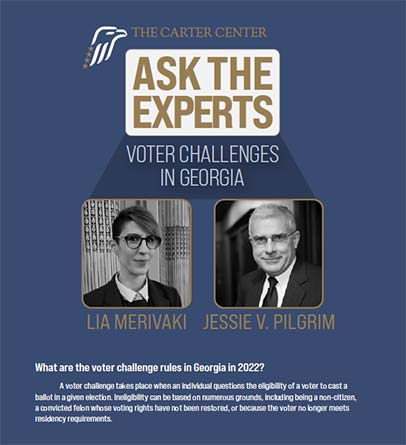
Ask the Experts: Voter Challenges in Georgia
A voter challenge takes place when an individual questions the eligibility of a voter to cast a ballot in a given election. Ineligibility can be based on numerous grounds, including being a non-citizen, a convicted felon whose voting rights have not been restored, or because the voter no longer meets residency requirements.
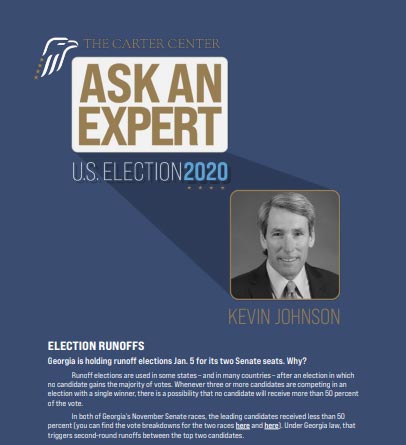
Ask an Expert: Kevin Johnson on Runoffs
Did you know Georgia is one of only two U.S. states that hold runoffs for general elections? U.S. election expert Kevin Johnson breaks down the arguments for and against runoffs and takes a closer look at one alternative: ranked-choice voting.
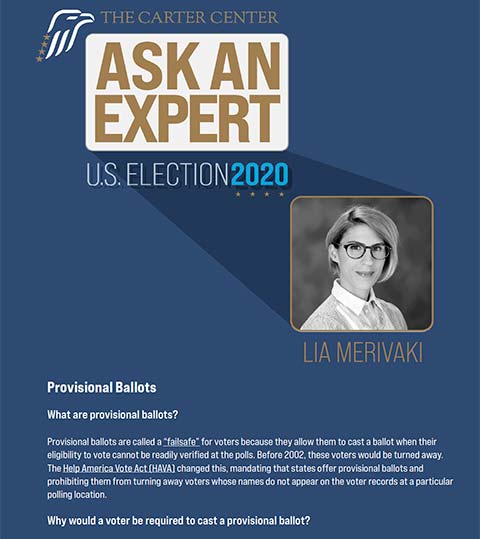
Ask an Expert: Lia Merivaki on Provisional Ballots
Just what are provisional ballots? When do voters have to cast them? How do you know if your provisional ballot has been counted? Get the answers to these questions and more in this Q&A with one of the Carter Center’s U.S. Election Expert Study Team.
Guides & Other Helpful Information
Guiding Principles document
In 2024, The Carter Center and the Baker Institute of Policy came together to identify ten principles that provide a framework for effective bipartisan electoral policies.
Wellness Guide 2.0
This short guide is intended to provide resources to election officials to support their mental and physical well-being and that of their colleagues and staff.
Political Party Poll Watcher Training Guide Arizona Case Study
Drawing on its experiences of leading more than 120 successful election observation missions worldwide, The Carter Center has distilled in this toolkit key training modules with practical information for political party poll watchers observing at voting locations on Election Day, using Arizona's election laws as a case study. The Center thanks its partner, Election Trust Initiative, for providing funding for this project.

Livestreaming Ballot Tabulation: Guidance to Ensure Effective Transparency (PDF)
Election officials across the country face increased public calls for greater electoral transparency. As a result, many election departments are considering providing or have already opted to provide livestreams of their ballot tabulation processes, so that any interested member of the public can watch as ballots are counted. Several states go further by mandating livestreams.

Risk-Limiting Audits: A Guide for Election Observation Efforts (PDF)
This guide begins with a survey of the history, theory, assumptions, and requirements of the Risk-Limiting Audit, flagging issues that election observers will need to consider when observing a particular audit.
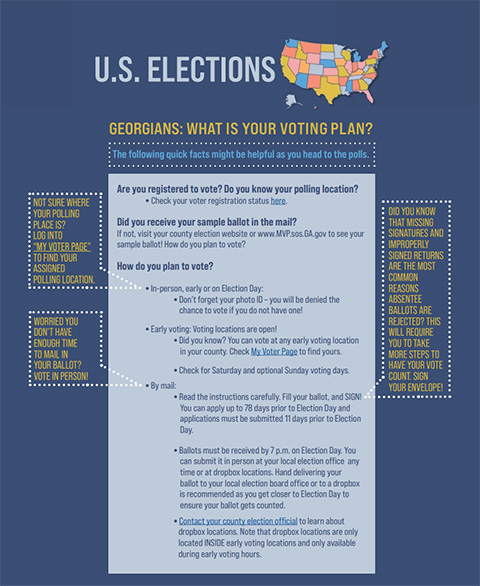
Georgia Voter Guide (PDF)
Georgians, what is your voting plan? This report has some quick facts that might be helpful as you head to the polls.
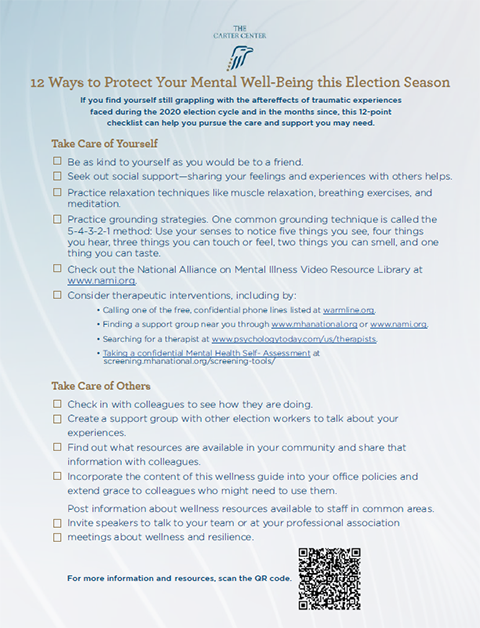
12 Ways to Protect Your Mental Well-Being this Election Season (PDF)
If you find yourself still grappling with the aftereffects of traumatic experiences faced during the 2020 election cycle and in the months since, this 12-point checklist can help you pursue the care and support you may need.
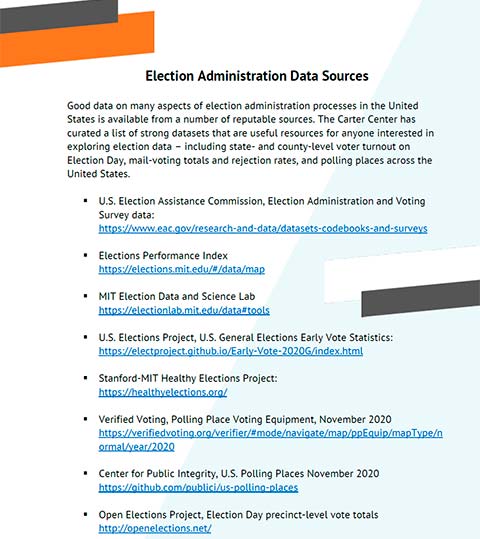
Election Administration Datasets (PDF)
Good data on many aspects of election administration processes in the United States is available from a number of reputable sources. The Carter Center has curated a list of useful resources for anyone interested in exploring election data – including state- and county-level voter turnout on Election Day, mail-voting totals and rejection rates, and polling places across the United States.













